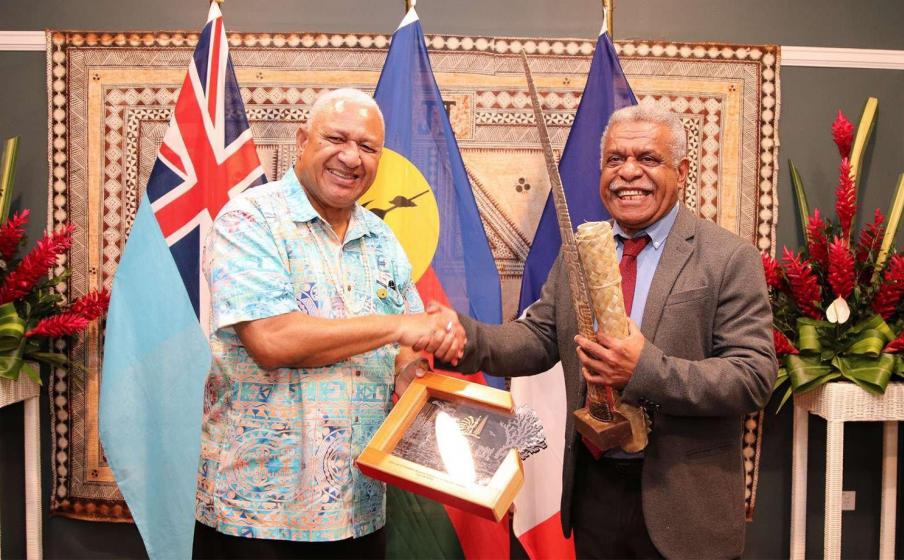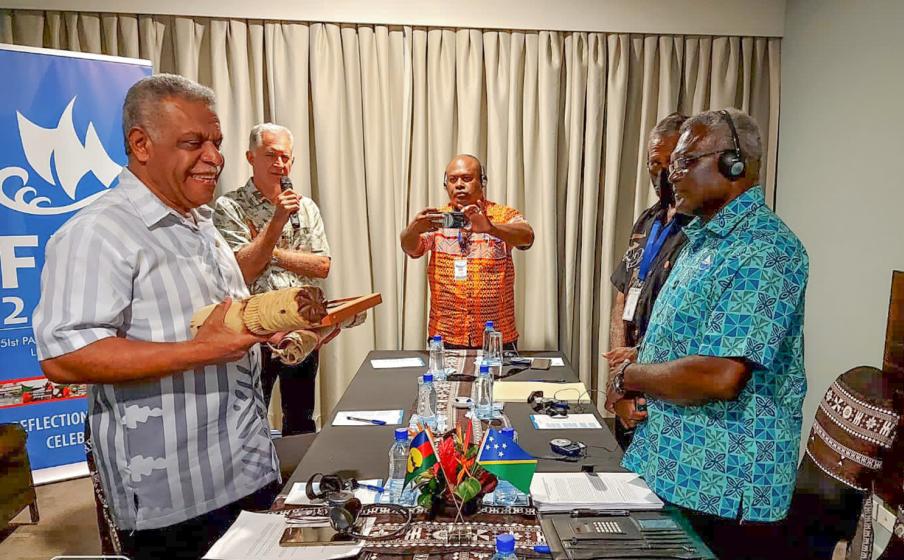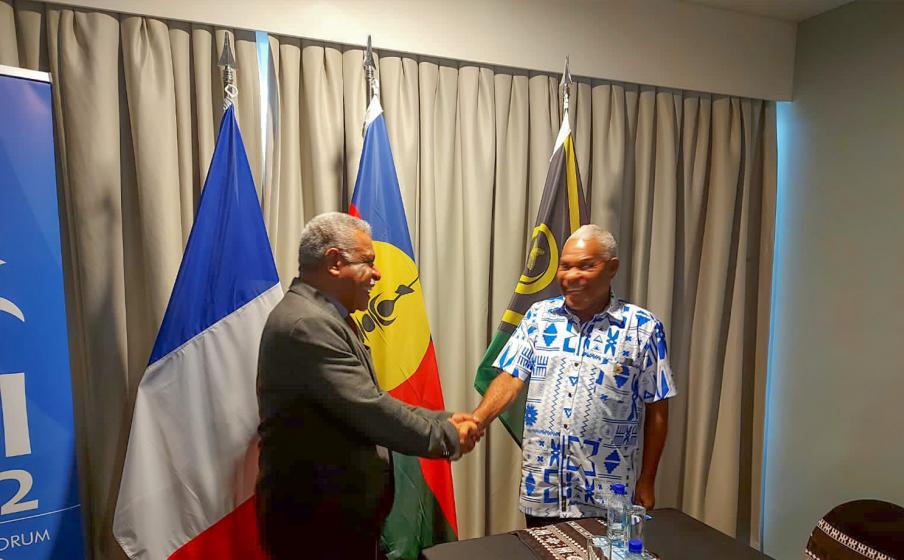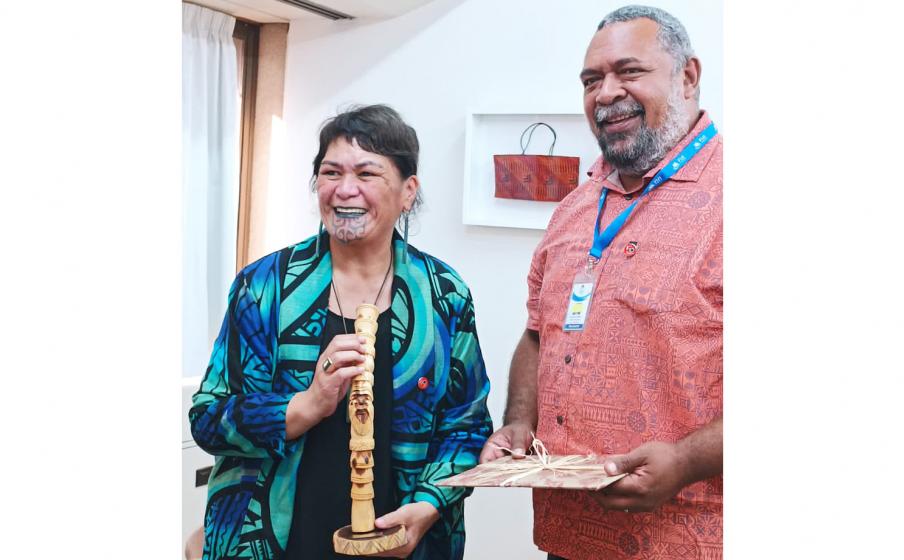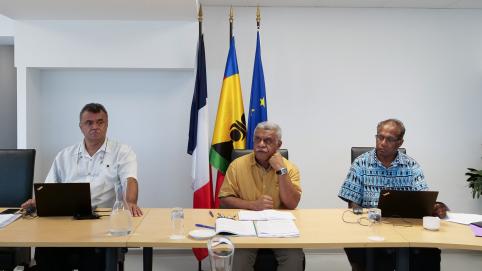Numerous Agreements Negotiated at the PIF
30 July 2022
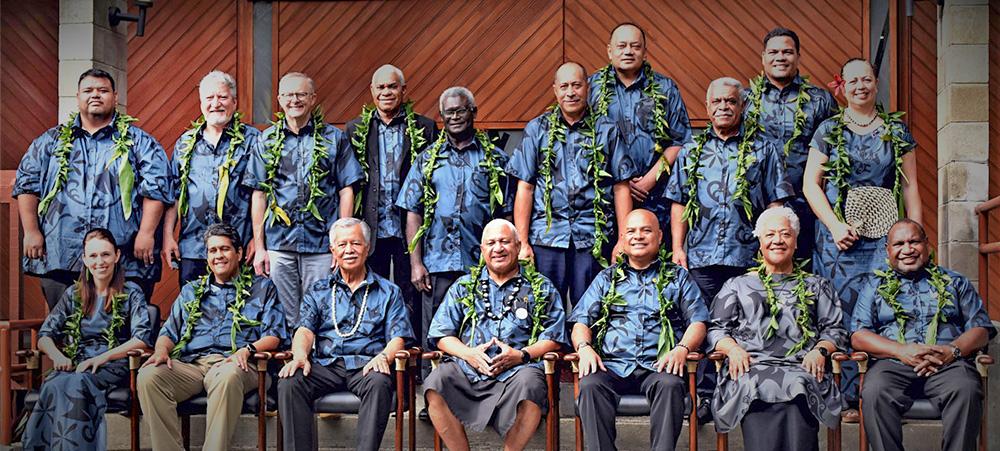
The 51e Pacific Islands Forum, held from July 11 to 15 in Suva, Fiji, allowed the leaders of the 17 member countries to take stock of the region's major political orientations. At the same time, the President of the Government Louis Mapou, head of the New Caledonian delegation, held a number of bilateral political and economic meetings with very concrete results. The outcome was particularly positive.
After a three-year absence due to the health crisis, the 51st Pacific Islands Forum (PIF) was held in Suva, Fiji from July 11 to 14. "This is a historic Forum because this year was an opportunity to commemorate the 50th anniversary of this political and economic organization in the region that promotes cooperation between governments," said Louis Mapou.
During four days, the PIF was the scene of plenary conferences between political leaders, accompanied by dialogue sequences during which the representatives of the member States and territories were able to discuss the region's major issues such as climate change, oceans and resource preservation, but also the "2050 Strategy" for the Blue Pacific Continent, that is to say, the model that will define the collective vision for the region.
"Strengthening Regional Solidarity
The meeting was marked by geopolitical rivalries in the region, particularly between the United States and China. U.S. Vice President Kamala Harris announced in a video address that Washington would open two new embassies in Tonga and Kiribati, appoint a regional envoy and inject an additional $600 million into the region.
Today, small countries are subject to a great deal of interest and pressure from the major powers. This Forum was above all an opportunity to strengthen regional solidarity in order to influence future decisions in the Pacific," said Louis Mapou. The governance framework of the organization was reviewed with the inclusion of Australia in the Melanesia sub-region and New Zealand in the Polynesia sub-region. All member countries have also accepted the Suva Agreement, under which the issue of the appointment of the Secretary General will be framed by a mechanism that will take into account the representation of the sub-regions including Micronesia.
Bilateral Meetings
At the same time, many contacts were made or deepened during several bilateral meetings. The New Caledonian delegation, led by the President of the Government Louis Mapou, was also composed of Mickaël Forrest, Minister for the international promotion of tourism and the monitoring of of external relations, and Roch Wamytan, Speaker of the Congress.
Thus, Australia and New Zealand wished to strengthen their relationship with New Caledonia in terms of school exchanges, regional security, but also the blue economy. Vanuatu and the Solomon Islands have reaffirmed their desire to develop bilateral trade relations, by promoting strategic growth sectors. A declaration of intent for the establishment of a joint free trade framework and to facilitate the sharing of experience and good practices should be signed with Vanuatu as soon as possible.
A Win-Win Agreement with Fiji
An in principle agreement has been reached between New Caledonia and Fiji. The territory is expected to help Fiji set up a mining code to regulate the extraction of its gold mineral resources in return for support in dealing with the shortage of doctors. "I was pleasantly surprised by the potential that Fiji has. They are willing to come and help us. However, for the moment the health regulations in New Caledonia prohibits the foreign doctors from praticing. I think that it would be possible to work on the same frame of reference. The debate must take place in Congress," said Louis Mapou.
Regional Cooperation Culture
"In New Caledonia, we do not yet have a culture of regional cooperation and our involvement in the Pacific remains ad hoc," said the President of the Government on his return from Fiji. However "We are considered as a real player" he added. Admitted to observer status in the aftermath of the Noumea Agreement in 1999, New Caledonia became an associate member of the Forum in 2009, then a full member in September 2016, along with French Polynesia, at the 47th meeting in Pohnpei, Micronesia. "This membership in the region is an opportunity, a chance but also a responsibility. We must resolutely do more".
The Participants in the 51st PIF
The Pacific Islands Forum has 18 member states and territories: Australia, Cook Islands, Federated States of Micronesia, Fiji, Kiribati, Nauru, New Zealand, Niue, Palau, Papua New Guinea, Republic of the Marshall Islands, Samoa, Solomon Islands, Kingdom of Tonga, Tuvalu, Vanuatu, New Caledonia and French Polynesia.
The event waś marked by the departure of the Kiribati Islands from the Forum, a few days before the start of the discussions, its representatives feeling sidelined. In February, Palau had also slammed the door, expressing their disappointment at the failure of the candidate who had their favor.
Climate emergency
At the end of the meeting the leaders of the "vulnerable Pacific islands", which are on the front line of rising sea levels, called on July 18, 2022, in a joint strategic document for 2050, adopted after three days of discussions, for "urgent" global action against climate change. Specifically, they ask the International Court of Justice, sitting in The Hague (Netherlands), to clarify the obligation of States "to protect the rights of present and future generations against the adverse effects of climate change. The region, they said, is on the "front line of the adverse effects of climate change" posing an "existential" threat to their survival
